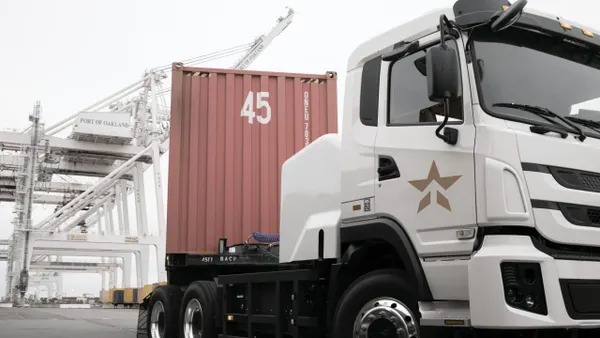From physical risks to concerns about hitting delivery deadlines, today’s truckers face a range of external pressures that can add to the stresses of the job. One important source of strain that may go overlooked, however, is financial anxiety. That’s become even more important in recent years, as uncertainty in the broader economy has heightened money-related stress.
Nearly half of U.S. workers are feeling financial stress, according to FinFit’s most recent research and 61% say they have less cash on hand now than they did a year ago. There are myriad reasons that so many workers are living paycheck to paycheck, including an uncertain economy, the recent inflation spike and low levels of financial literacy. Plus, the financial services industry primarily focuses on the top third of the U.S. workforce, leaving the rest of the country to essentially fend for themselves.
Recent wage increases for drivers have done little to offset the many additional impediments that they face when it comes to achieving financial security. Hurdles include health challenges, higher-than-average debt levels and budgeting for food and other necessities on the road.
“It’s important to decouple income from financial health,” says Charles Lattimer, Chief Innovation and Growth Officer at FinFit. “We can’t assume that someone making more than $75,000 per year isn’t financially stressed out, which impacts their work performance.”
High levels of financial insecurity are having serious ramifications for both the drivers themselves and the industry as a whole. Here’s a look at three challenges that trucker financial stress creates for the industry.
Driver safety
As with other distractions, concerns about personal or family financial wellness can create a safety concern for drivers. One in five adults report experiencing forgetfulness when they’re stressed and 17% say they have difficulty making decisions. That’s particularly dangerous for truck drivers. Researchers at the University of Pittsburgh found that drivers worried about their finances were more likely to have a preventable accident.
“When someone is stressed out financially, they have difficulty even thinking clearly and, typically, they have sleep deprivation and suffer from higher levels of anxiety,” says Tim O’Neil, Senior Workforce Solutions Specialist at TrueNorth Companies, a professional services and insurance brokerage firm that provides insurance tools and solutions. “Then they’re driving an 80,000-pound semi truck down the road and they’re distracted because they’re worried about how they’re going to be able to pay bills.”
The University of Pittsburgh researchers estimated that financial precarity of drivers was associated with more than $1.3 million per year in additional company costs.
“The things that stress out truck drivers may not be much different than what stresses out other workers, but the impact can be so big when someone has a catastrophic event like a semi-truck crash,” O’Neil says.
Retention
The driver shortage has been well documented. In today’s competitive labor environment, truckers may be open to looking at other careers or positions that they believe will better set them up for financial security. Research shows that employers who have implemented financial wellness programs have seen a 25% to 58% increase in employee retention.
In an industry with companies that have turnover rates north of 90%, the ability to boost driver retention could be a competitive advantage. Staying put could benefit drivers as well, Lattimer says.
"Money stability isn't just about how much you earn; it's more complicated than that," says Lattimer. "Switching jobs often can make it hard to keep your finances and benefits steady, especially if you're already living paycheck to paycheck."
Overall wellness
Financial insecurity can have a negative impact on other parts of a trucker’s life. More than half of employees say that financial stress and money worries have had a negative impact on their sleep and on their mental health and 44% say it has impacted their physical health. Chronic stress has been linked to heart problems, obesity and other illnesses. That, in turn, can create additional people-related challenges for employers, including lower productivity levels and additional health-related costs, further stretching already tight budgets.
Financial stress can have far-reaching implications for truckers and the trucking industry, far beyond the budgets of individual truckers. Helping truckers address such problems — through financial wellness and other initiatives — can not only improve the lives of drivers, but also boost the bottom line of their employers.
TrueNorth Companies and FinFit are joining forces to provide solutions for truckers' financial wellbeing. Learn more.










